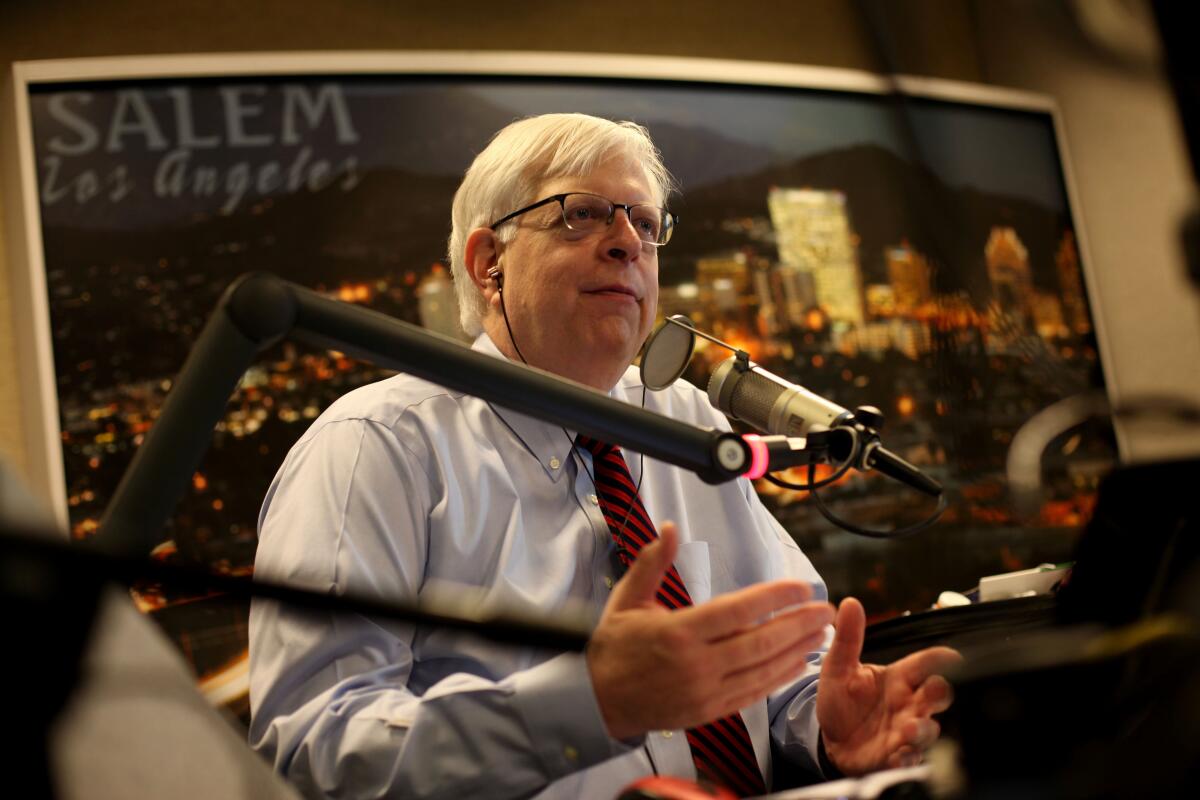YouTube has censorship problems. The 1st Amendment isn’t the tool to fix them

- Share via
The U.S. 9th Circuit Court of Appeals made an important and necessary point again on Wednesday when it threw out a lawsuit that claimed YouTube violated the Constitution’s free-speech protections by restricting access to videos and advertising on its platform. As big as YouTube may be, it is simply not a public space run by the government, and therefore it is not bound by the 1st Amendment.
The lawsuit was brought in 2017 by Prager University, a nonprofit organization co-founded by conservative talk radio host Dennis Prager in 2011. It’s not an educational institution, but rather a prolific outlet for commentary about the news, policy issues and history. According to his lawyers, Prager launched it as a way “to provide conservative viewpoints and perspectives on public issues that it believes are often overlooked or ignored due to the dominance of liberal and left-wing perspectives in higher education in the United States.”
PragerU offers its videos through multiple online channels, including Facebook — which by some metrics is the most popular online video outlet in the United States — and Twitter. But when YouTube put nearly 40 of the nonprofit’s videos in “restricted” mode (a setting that lets people filter out content aimed at mature audiences) and barred advertising on more than 40 videos (including some of the restricted ones), PragerU sued in state and federal courts, arguing that its rights had been violated because of its conservative viewpoint. It also accused YouTube of false advertising for holding itself out as a platform open to all.
The nonprofit’s 1st Amendment claims, however, threatened to set a precedent that would undermine websites’ power to decide the rules for their platforms. Streaming services are not like freeways or other taxpayer-financed infrastructure, and no one is entitled to use them. As the Supreme Court recently held, “merely hosting speech by others” doesn’t automatically “transform private entities into state actors subject to 1st Amendment constraints.”
Beyond that, YouTube didn’t “censor” any PragerU videos; it just made it easier for the less than 2% of its users who use the site’s “restricted mode” to block them, based on YouTube’s judgment that the topics (including abortion and radical Islam) really were best suited for adult viewers. Notably, one analysis found that a smaller percentage of PragerU’s videos have been restricted than those from the liberal groups Young Turks and Democracy Now, the “Daily Show” and even the History Channel.
Free expression is vital to a free society, and it’s inane for YouTube to treat controversial political and policy issues the same as sexually suggestive or violent videos. But treating Big Tech companies as if they were the government and their online platforms as if they were public squares is not the answer.
More to Read
A cure for the common opinion
Get thought-provoking perspectives with our weekly newsletter.
You may occasionally receive promotional content from the Los Angeles Times.









